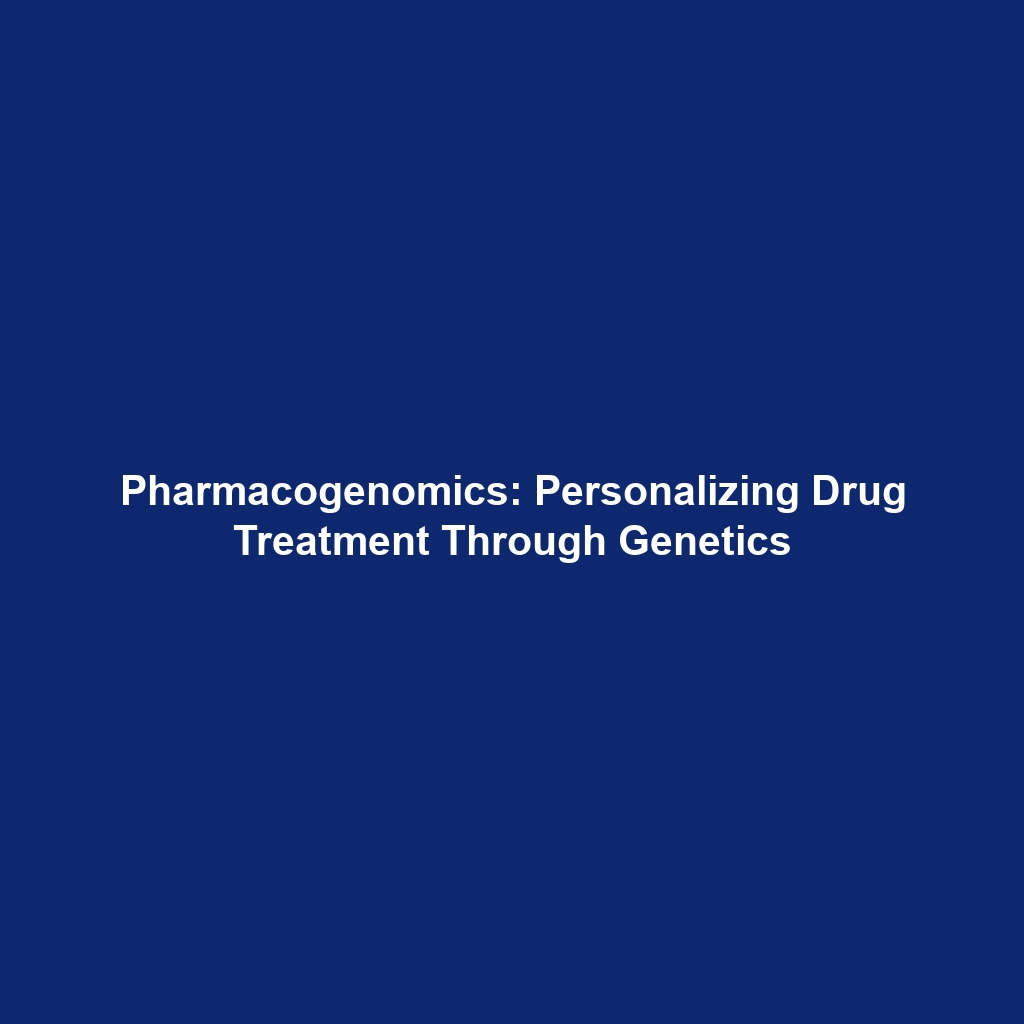Pharmacogenomics: How Knowledge of an Individual’s Genetic Profile Can Predict Their Response to Certain Drugs and Guide Treatment Decisions
Pharmacogenomics is a revolutionary field that merges pharmacology and genomics, focusing on how an individual’s genetic makeup influences their response to medications. This cutting-edge science is significantly shaped by insights gained from the Human Genome Project (HGP), enhancing our understanding of personalized medicine. By integrating genetic data with drug therapy, pharmacogenomics holds the promise of optimizing treatment outcomes and minimizing adverse effects. This article delves into the importance of pharmacogenomics within the landscape set by the HGP, exploring its concepts, applications, challenges, and future innovations.
Key Concepts
Pharmacogenomics encompasses several core principles that link genetics to pharmacology:
- Gene Variants: Understanding how single nucleotide polymorphisms (SNPs) can affect drug metabolism and efficacy.
- Drug Response: Investigating how specific genetic profiles influence both positive and negative reactions to drugs.
- Personalized Medicine: The move towards customizing medical treatment based on individual genetic information.
The Human Genome Project has provided the foundational data necessary for these investigations, mapping human genes and elucidating their functions, which informs the field of pharmacogenomics and its applications in clinical settings.
Applications and Real-World Uses
Pharmacogenomics offers numerous practical applications, particularly in improving drug therapy through tailored medical approaches. Key applications include:
- Oncology: Genetic testing can help predict which cancer drugs will be most effective for individual patients.
- Cardiology: Tailoring anticoagulant therapy based on genetic variations related to blood clotting mechanisms.
- Psychiatry: Identifying suitable antidepressants based on genetic factors influencing drug metabolism.
These innovations highlight how pharmacogenomics reshapes treatment protocols, fostering a move towards individualized healthcare solutions built on the groundwork of the Human Genome Project.
Current Challenges
Despite immense potential, pharmacogenomics faces several challenges that hinder its widespread application:
- Data Integration: Difficulty in integrating genomic data with electronic health records for real-time decision-making.
- Regulatory Issues: Uncertainties regarding guidelines for the use of pharmacogenomic testing in clinical practice.
- Lack of Awareness: Insufficient education among healthcare providers about the benefits and limitations of pharmacogenomics.
These challenges highlight critical issues in the advancement of pharmacogenomic research, especially as it relates to the objectives laid out in the Human Genome Project.
Future Research and Innovations
Looking forward, pharmacogenomics is poised to revolutionize the medical landscape with several anticipated innovations:
- Next-Gen Sequencing: Advances in sequencing technology promise faster and more affordable genomic analyses.
- Big Data Analytics: Enhanced data analytics capabilities can streamline the evaluation of genomic data, leading to better predictive models.
- AI Integration: Artificial Intelligence will play a crucial role in interpreting complex genetic information and guiding treatment decisions.
These breakthroughs signify a future where pharmacogenomics, supported by the Human Genome Project’s achievements, will significantly enhance individual patient care.
Conclusion
In summary, pharmacogenomics offers transformative insights into how individual genetic profiles can predict drug responses and guide treatment decisions, a significant advancement rooted in the Human Genome Project. As research progresses, the integration of pharmacogenomics into standard medical practices promises to usher in an era of personalized medicine where therapies are tailored to genetic make-up, enhancing efficacy and safety. For further reading on the implications of pharmacogenomics, explore our sections on personalized medicine and the Human Genome Project’s contribution to modern genomics.
